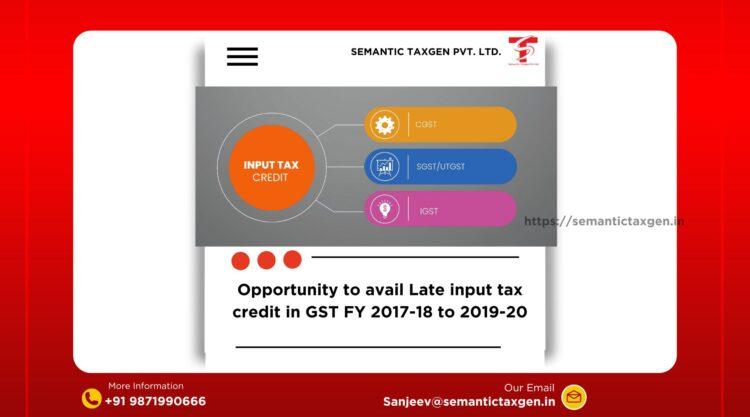
On October 15, 2024, the Central Board of Indirect Taxes and Customs (CBIC) issued a circular regarding the implementation of Section 16(5) and Section 16(6) of the Central Goods and Services Tax (CGST) Act, 2017. These provisions relate to the retrospective extension of time limits for claiming Input Tax Credit (ITC).
According to CGST act 2017 the law relating to availment of ITC is available in section 16 of CGST Act. Subsections 16(5) and 16(6) particularly allow the government to set time limits with regard to when taxpayers can claim ITC for the inward supplies. Earlier, for claiming ITC, taxpayers had to claim ITC before the filing of returns for September or second quarter of the financial year immediately following the year of receipt of the supply.
The circular makes it clear that in view of the changes made in the Finance Act, 2024, ITC availing time limit as provided under Section 16 has been made retrospective. What this implies is that for those taxpayers who could not recover ITC within the past expiry dates, they can now do so provided that the kind of transactions being sought was done within the set permitted dates.
The main goal is to meet the complaints of the firms which failed to avail ITC within earlier dates because of some system restrictions or technicalities, or lack of knowledge or awareness. The retrospective extension has been proposed with an intention to offer comfort to such taxpayers and avoid genuine ITC claims go waste.
Taxpayers should verify that the ITC claim invoice figures are included in the supplier’s GSTR-1 and that similar details are available in GSTR-2B of the recipient. If this is not done, the ITC claim may be rejected and this as we all know is not desirable. The circular also makes it clear that any application that was previously rejected because of failure to meet time limits in an application for ITC will now be revived based on the retrospective operation of the extension.
This retrospective extension is however a great relief to business especially those which transact so many business. It creates opportunity for correction of past mistakes or failures and achievement of optimum tax statuses. But it is the duty of the companies to avoid missing some of the documents to ensure that their filing is in accord with the amendments.
With regard to the taxpayer’s grievances, CBIC has consistently shown that it is willing and able to tackle the issues without compromising on the GST framework standards.
Alternatively, with respect to matters wherein no demand notice or statement under the Section 73 or 74 has been issued, the taxpayers can stick to claiming ITC in accordance with the provisions of the amended provisions.
Even in a situation where demand notice or statement has been served under section 73 or 74 and no order has been passed then also the affected taxpayer has beneficial extension to avail the ITC under above sections provided that the new time limit is complied with.
But if before lapse of the extended time limits an order under Section 107 has not been passed with reference to an appeal filed in relation to an order made under Section 73 or 74, the very mechanism provides for every taxpayer to claim the ITC benefit under the aforesaid time limits as granted.
Even for such cases where the revisional proceedings have been initiated by the authority but the order under Section 108 has not been passed then the ITC claims can be processed within the extended timelines only.
Even where orders have been made and there are no appeals or where the matter is sub judice in the appellate tribunal, the ITC can still be claimed over a period provided avenues dictated by the new time limits have been lawfully exploited.
The circular also gives clear ledges on the process of filing rectification applications in cases where taxpayers failed to claim ITC as a result of earlier time limitations. The taxpayers need to apply together with an institutionalized format that should be followed in the management of the new timelines through writing the applications and providing all the relevant documents, which should be provided to amend the claims.
This circular is significant for business entities to review their ITC claims in view of the retrospective amendments and made aware of the changed time line prescribed under the CGST Act, 2017.
DISCLAIMER: The information provided in this article is intended for general informational purposes only and is based on the latest guidelines and regulations. While we strive to ensure the accuracy and completeness of the information, it may not reflect the most current legal or regulatory changes. Taxpayers are advised to consult with a qualified tax professional or you may contact to our tax advisor team through call +91-9871990777 or info@semantictaxgen.in
© 2013-25 Semantic Taxgen Pvt Ltd - All Rights Reserved